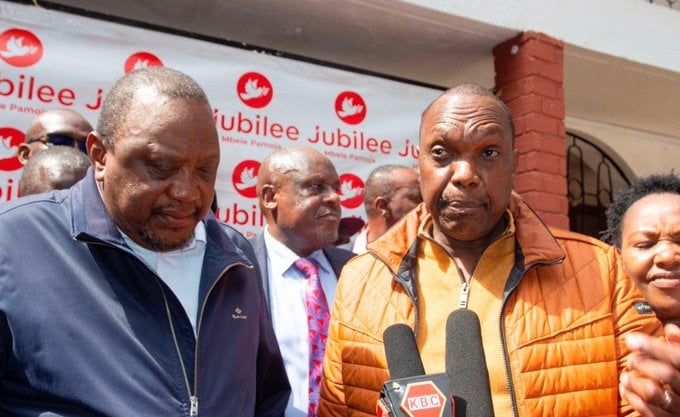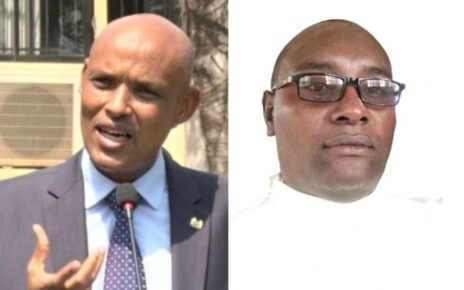Former President Uhuru Kenyatta’s decision to step down as the leader of the Jubilee Party has sparked conversations about his future role in politics and the direction of the party. According to Secretary General Jeremiah Kioni, Uhuru may have relinquished his official title, but his influence within Jubilee and the broader political landscape is far from over.
Kioni revealed that the party has created a new structure that will allow Uhuru to serve in a patron-like capacity, alongside other veteran leaders who will form part of an advisory organ. This body is designed to harness the wisdom and experience of elder statesmen, ensuring that the party continues to benefit from their guidance even as younger leaders take on frontline roles.
The announcement came after Jubilee’s National Delegates Conference (NDC) held on September 26, 2025. The meeting was largely framed as an opportunity for Uhuru to chart the party’s direction ahead of the 2027 general election. Kioni emphasized that while other influential figures such as former Interior CS Fred Matiang’i were present, the platform was deliberately tailored for Uhuru to share his vision with party members.
A major highlight of the NDC was Uhuru’s reaffirmation that Jubilee remains firmly within the Azimio la Umoja coalition. This statement came amid political realignments and speculations that Jubilee might chart its own path. Uhuru stressed that the party’s continued partnership with Azimio is based on shared values and long-term goals rather than short-term convenience.
Kioni’s remarks paint a picture of a party seeking to balance tradition with transition. On one hand, Jubilee is preserving Uhuru’s influence through an elder advisory role, ensuring continuity of leadership. On the other, it is preparing younger leaders to take charge as the country moves closer to another election season.
The creation of this advisory organ may also be a strategic move to keep Uhuru politically relevant without exposing him to the direct challenges of active party leadership. It allows him to mentor, guide, and offer direction while giving space for other leaders to take up the day-to-day responsibilities of mobilization and decision-making.
For many Kenyans, Uhuru’s soft exit signals both an end and a continuation. It marks the end of his tenure as the face of Jubilee, but it also confirms his ongoing presence as a political actor who still commands respect and influence. By stepping back without stepping away, he positions himself as a senior statesman whose voice will remain significant in shaping the future of Jubilee and, by extension, Kenya’s politics.
As the 2027 elections draw nearer, it remains to be seen how Jubilee will reorganize itself under this new leadership structure. What is clear, however, is that Uhuru Kenyatta’s political journey has not yet reached its conclusion. He may no longer be party leader, but his role as an adviser and mentor ensures that his shadow will continue to loom large over Jubilee’s path forward.



